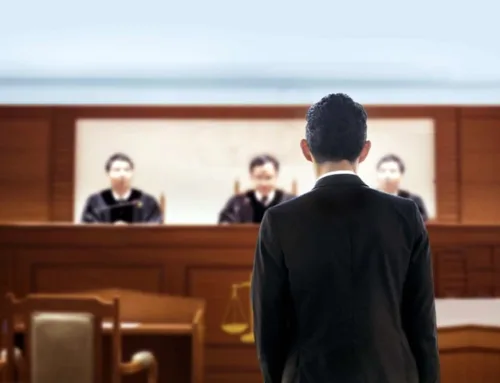You Have the Right to Remain Silent: Understanding Miranda Rights in Utah
Introduction:
If you’ve ever watched a crime drama, you’ve heard the famous words: “You have the right to remain silent. Anything you say can and will be used against you in a court of law…” These are the opening lines of the Miranda Rights warning that police officers give to suspects. But what do these rights really mean, and why are they so important? In this blog post, we’ll break down what Miranda Rights are, why they matter, and how they came to be. We’ll also look at how the U.S. Supreme Court has shaped these rights over time, how Utah courts interpret them, and real-world examples of Miranda Rights making a difference in criminal cases. Finally, we’ll offer some guidance on when and how to invoke your right against self-incrimination. Our goal is to explain these legal concepts in an easy-to-understand way so you can feel confident about your rights.
What Are Miranda Rights and Why Do They Matter?
Miranda Rights Defined
Miranda Rights refer to the constitutional rights that police must inform you of before a custodial interrogation—that is, when you are in police custody and being questioned about a crime. These rights flow primarily from the Fifth Amendment (protection against self-incrimination) and the Sixth Amendment (right to counsel) of the U.S. Constitution. In plain language, Miranda Rights typically include:
- The right to remain silent – You do not have to answer questions or make any statements to the police.
- Anything you say can be used against you – If you do speak, your words may be used as evidence in court.
- The right to an attorney – You have the right to consult with a lawyer and have one present during questioning.
- If you cannot afford an attorney, one will be provided – If you cannot afford private counsel, the court will appoint a lawyer to represent you.
Police officers recite these warnings upon arrest or before they question a suspect in custody. The exact wording can vary, but the substance is the same. If police fail to give a proper Miranda warning, or if a suspect does not knowingly and voluntarily waive these rights, then any statements or confessions made during the interrogation cannot be introduced by prosecutors as evidence at trial.1
Why Miranda Rights Matter
Miranda Rights are critical because they protect fundamental constitutional guarantees. Police interrogations can be stressful, coercive situations; without these warnings, a suspect might not realize they have the right to refuse to answer questions or to request an attorney’s help. By requiring a clear explanation of these rights, the U.S. Supreme Court ensures that suspects are given a fair opportunity to avoid self-incrimination. Even if a suspect’s confession is otherwise voluntary, if Miranda warnings were never properly administered or waived, the statement can be suppressed (excluded) from use at trial.2
The Landmark Case: Miranda v. Arizona (1966)
Miranda Rights are named for the landmark U.S. Supreme Court case Miranda v. Arizona.3 In that case, Ernesto Miranda was arrested for serious crimes and interrogated by the police without being told he had the right to remain silent or the right to an attorney. He ultimately confessed in writing. At trial, that confession was the key piece of evidence. However, the Supreme Court reversed his conviction, holding that the Fifth Amendment requires police to inform suspects in custody of their constitutional rights before any questioning.4
The Court specifically ruled that if law enforcement does not properly advise suspects of their rights or does not obtain a knowing and voluntary waiver of those rights, any statements or confessions cannot be used against them at trial.5 This ruling was a major shift in American criminal procedure, leading police departments nationwide to adopt the now-familiar Miranda warning.
(Interestingly, after being retried without his initial confession, Ernesto Miranda was ultimately convicted based on other evidence. Later, he died in a bar fight—and the suspect in his killing was read his own Miranda Rights.)
How Miranda Rights Have Evolved Over the Decades
The Miranda decision was groundbreaking, and subsequent U.S. Supreme Court cases have refined its scope:
- Miranda as a Constitutional Rule
In Dickerson v. United States, the Supreme Court reaffirmed Miranda as a bedrock constitutional principle, striking down a federal statute that tried to weaken its requirements.6 The Court held that neither Congress nor lower courts can override Miranda warnings because they are constitutionally required. - Defining “Custody”
Miranda warnings are necessary only in custodial interrogations. In Berkemer v. McCarty, the Court clarified that a routine roadside traffic stop is not custodial, so Miranda is not required in brief traffic-stop inquiries.7 Only when a reasonable person in the suspect’s position would feel they are not free to leave—akin to a formal arrest—does custody arise. - What Counts as “Interrogation”
Miranda applies to questioning by law enforcement that is likely to elicit incriminating responses. If a suspect volunteers information or speaks to an undercover officer (without knowing the officer’s identity), it may not trigger Miranda. Illinois v. Perkins illustrates that Miranda warnings are not required when a suspect talks freely to someone he does not realize is a police agent.8 - The Public Safety Exception
In New York v. Quarles, the Supreme Court created a public safety exception—allowing police to ask questions without first giving Miranda warnings if there is an immediate threat to public safety (such as a hidden gun in a crowded place).9 - Invoking the Right to Counsel
Edwards v. Arizona strengthened Miranda by holding that if a suspect clearly requests an attorney, the police must stop questioning unless the suspect re-initiates communication.10 This rule ensures the right to counsel remains effective once invoked. - Must You Speak Up to Stay Silent?
In Berghuis v. Thompkins, the Court held that simply remaining silent is not enough to invoke your right to remain silent; a suspect must explicitly state that they are invoking this right.11 - Pre-Arrest Questioning—Salinas v. Texas
In Salinas v. Texas, the Supreme Court decided that if you are not under arrest and police have not read you any Miranda warnings, you must still affirmatively invoke your Fifth Amendment right. Simply refusing to answer one question can be used against you unless you clearly state you are relying on the Fifth Amendment.12 - Police Tactics: Question-First, Warn-Later
In Missouri v. Seibert, the Court addressed a tactic where officers deliberately withhold Miranda warnings, get a confession, then read the suspect their rights and prompt them to repeat their admission. The Court ruled that such a strategy undermines Miranda, and statements from a “two-step interrogation” can be suppressed.13
How Utah Courts Interpret and Apply Miranda Rights
Because Miranda is rooted in federal constitutional law, Utah courts follow the Supreme Court’s decisions.14 However, Utah also has state-specific nuances:
- Consistent with Federal Standards
Utah courts apply the same tests for custody, interrogation, and voluntary waiver as described in Supreme Court rulings. A routine traffic stop or brief investigative stop is not considered custody.15 Once a suspect is indeed in custody, if police fail to give proper warnings or if the suspect does not knowingly waive those rights, any confession or incriminating statements may be suppressed. - Valid Waiver Must Be Knowing, Intelligent, and Voluntary
Utah courts, like other jurisdictions, will examine whether a suspect fully understood the Miranda Rights before deciding that any waiver was valid.16 Factors such as language barriers, mental capacity, and police coercion play a role in assessing voluntariness. - Extra Protections for Juveniles
Utah law provides additional protections for minors. A juvenile cannot generally waive Miranda rights without a parent, guardian, or attorney present, reflecting the state’s policy that children need special safeguards during interrogations.17 - Local Case Example—Improper Timing of Miranda
In a recent Utah Court of Appeals case, a conviction was overturned because the officers questioned the suspect while in jail on other charges, obtained a confession, and then gave Miranda warnings. The court concluded that giving the warnings after-the-fact was not sufficient to sanitize the earlier unwarned confession.18 This demonstrates Utah’s alignment with Missouri v. Seibert in preventing question-first, warn-later tactics.
Real-World Examples Where Miranda Rights Made a Difference
- Original Miranda Case
Ernesto Miranda’s written confession was excluded by the Supreme Court since he had not been advised of his rights in custody. This changed the approach of law enforcement nationwide. - Public Safety Exception: New York v. Quarles
The suspect’s unwarned admission about the location of a hidden gun was allowed because officers needed to protect the public immediately. This illustrates a narrow exception to the requirement of warnings.9 - Clear Invocation: Edwards v. Arizona
Once a suspect says, “I want a lawyer,” the police must stop questioning immediately. If they continue to interrogate, any statements may be inadmissible. - Failure to Clearly Invoke: Berghuis v. Thompkins
A suspect who remained mostly silent for nearly three hours eventually answered incriminating questions. Because he never explicitly invoked his right to silence, that brief statement was deemed admissible.11 - Utah Suppression Example
In the Utah home-invasion case referenced above, the delayed Miranda warnings caused the suspect’s confession to be tossed out.18 This resulted in the conviction being vacated. It underscores that Miranda is not a mere technicality; it can make or break a case.
When (and How) to Invoke Your Right Against Self-Incrimination
Here are some practical tips on invoking the Fifth Amendment and Miranda Rights:
- Immediately and Clearly
If you are arrested or in a situation where you believe you are not free to leave, you can say, “I am invoking my right to remain silent. I want to speak to an attorney.” Under Edwards, police questioning should stop there.10 - Non-Custodial Settings
If you are not under arrest but sense the conversation is turning accusatory, you must still explicitly say you are invoking the Fifth Amendment if you wish to remain silent.12 - Stay Calm and Polite
Invoking your rights does not mean you have to be rude. You can calmly say, “Officer, I understand you have a job to do, but I do not wish to answer any more questions without a lawyer.” - Repeat if Necessary
If officers keep asking questions, you can repeat your invocation. Once a suspect invokes, any further interrogation without a lawyer present may render resulting statements inadmissible. - Juveniles
In Utah, minors should have a parent, guardian, or attorney involved before waiving rights, and any statement taken otherwise may be thrown out.17
Conclusion: Know Your Rights and Use Them – We’re Here to Help
Miranda Rights are a powerful shield designed to protect you from self-incrimination during police interrogations. They remind you that you do not have to face skilled investigators alone and that you can request legal counsel to guide you. If officers ever question you—whether you are innocent or guilty—you have the right to remain silent and to speak with a lawyer first. Once you invoke these rights, the interrogation should cease until your attorney arrives.
At Hepworth Legal, we are committed to defending those rights. Our criminal defense attorneys are experienced in identifying Miranda violations and other constitutional issues that can significantly impact a criminal case. If you believe your rights have been violated or you face criminal charges in Utah, please contact us. We will evaluate whether police obtained statements in violation of Miranda and, if so, move to suppress them—potentially changing the entire trajectory of your case.
Don’t leave your fate to chance. If you or a loved one has been arrested or are under investigation, reach out to Hepworth Legal today. Let our dedicated defense team help you navigate the legal process, protect your constitutional rights, and fight for the best possible outcome. Your rights matter—make sure they are safeguarded by professionals who know how to enforce them.
Footnotes
- Miranda v. Arizona, 384 U.S. 436 (1966).
- Id. at 479.
- Miranda, 384 U.S. 436.
- Id. at 444.
- Id. at 475–476.
- Dickerson v. United States, 530 U.S. 428, 432 (2000).
- Berkemer v. McCarty, 468 U.S. 420, 439–440 (1984).
- Illinois v. Perkins, 496 U.S. 292, 300 (1990).
- New York v. Quarles, 467 U.S. 649, 654–655 (1984).
- Edwards v. Arizona, 451 U.S. 477, 484–485 (1981).
- Berghuis v. Thompkins, 560 U.S. 370, 381–385 (2010).
- Salinas v. Texas, 570 U.S. 178, 181–183 (2013).
- Missouri v. Seibert, 542 U.S. 600, 617 (2004).
- See generally Utah Const. art. I, § 12 (mirroring many federal rights).
- See, e.g., State v. Hansen, 734 P.2d 421, 424 (Utah 1986) (discussing when a reasonable person would feel free to leave).
- State v. Leyva, 906 P.2d 910, 915–16 (Utah 1995).
- See Utah Code Ann. § 80-6-206 (requiring parental or attorney presence for juveniles to waive rights in most situations).
- See State v. Uptain, 529 P.3d 105, 110–12 (Utah Ct. App. 2023) (ruling that a post-confession Miranda warning does not cure the prior violation).
This article is for general informational purposes only. It does not constitute legal advice and does not create an attorney-client relationship. For legal advice specific to your situation, consult an attorney.





Leave A Comment